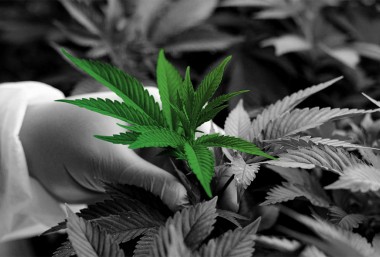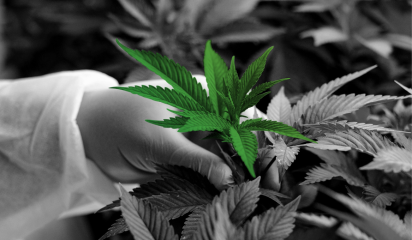Background
In the lead-up to the 2020 referendum on cannabis legalisation, the New Zealand government has introduced the draft Cannabis Legalisation and Control Bill (draft Bill). As part of the harm prevention approach of the draft Bill, there are significant restrictions on promotion of cannabis products. These mirror existing restrictions relating to tobacco products, and include restrictions on trade mark use, which could have interesting consequences for trade marks used on non-cannabis products.
To help meet the goal of harm reduction, the draft Bill aims to prohibit ‘inducements to use cannabis’. A central part of the approach the draft Bill takes to achieve this purpose is to place restrictions around the promotion and packaging of cannabis products. These restrictions are set out in sections 35-48 of the draft Bill and largely replicate the restrictions on tobacco product advertising in the Smoke-free Environments Act 1990.
Advertising and packaging
The draft Bill prohibits the publication of advertisements for cannabis products in New Zealand (although this does not include advertisements for medicinal cannabis).
The definition of advertisements includes any words promoting of the use or sale of cannabis products, as well as product placement. The definition covers advertisements in any media, including visual media and trade journals.
Exemptions to this prohibition include:
- price lists provided to retailers (if they include required health messages)
- internal publications for cannabis manufacturers
- museum or art gallery exhibitions
- film, video or sound recordings which were made before a ‘set date’ (most likely the commencement date of the legislation) where the reference to, or depiction of, a cannabis product trade mark is only incidental.
The draft Bill also provides an exemption for media from outside of New Zealand unless that media is:
- mainly intended to promote the use of cannabis products;
- primarily targeted at the New Zealand market; or
- for advertising included with radio and television media, if the included advertising is primarily targeted at the New Zealand market.
Unless specifically required or permitted by the legislation, the draft Bill also prohibits any notices or signs communicating information (including health information or age restrictions) about cannabis products being displayed at the premises of a cannabis retailer or wholesaler.
The draft Bill includes minimum packaging standards, which the regulations will further clarify. In terms of the appearance of any packaging, these include requirements that the immediate container for any cannabis product must be opaque and the container must have a label stating:
- the brand name applied to the product
- the name of the cultivation licence holder (for plants or seeds) or product processor (for other products)
- the type of cannabis product packaged
- recommended storage conditions
- the packaging and expiry date, or statement that there is no determined expiry date
- health warnings as set out in Schedule 3 of the draft Bill (currently blank) or otherwise prescribed by regulation.
For the moment, the exact restrictions on cannabis product packaging are yet to be fully defined, with the draft Bill setting out a broad scope for regulation beyond the minimum packaging standards. These regulatory powers include the ability to prescribe the quantity, form, size and content of the products and packaging, as well as the messaging, information and pictures to be included, and any other aspects of the appearance of the products.
Trade marks
The draft Bill’s definition of trade marks includes registered and unregistered trade marks, specifically calling out brand names, company names used for promotion or anything else likely to be seen as a trade mark by consumers.
The draft Bill also uses the term ‘cannabis product trade mark’. While this is not given its own definition in the draft Bill, this likely means trade marks used for or applied to cannabis products.
Section 39 prohibits the use of cannabis product trade marks for:
- any products which are not cannabis products or cannabis product packaging (and the sale of those products);
- any services, events or activities; or
- any scholarships, fellowships or educational opportunities.
Importantly, this section applies to the use of the cannabis product trade mark by ‘any person’, rather than just the owner of the cannabis product trade mark. This is clearly intended to prevent the sale of merchandise, promotional goods and cannabis-focused activities.
Section 39 does, however, have the side effect of cannabis product trade mark owners getting the additional advantage that other traders will not be able to use their trade mark for any products or services. Whereas regular trade mark owners can normally only prevent others using an identical or similar mark for identical or similar products or services. This is balanced, of course, by the very limited use that cannabis product trade marks can be put to by their owners, and mirrors the treatment of tobacco product trade marks in New Zealand.
As with the mirrored legislation governing tobacco product trade marks, if a trader has already used or registered a trade mark, prior to the introduction of the new legislation, it can use that trade mark, whether or not it is subsequently adopted as a cannabis product trade mark.
Notably, there is no requirement for these trade marks to be in current use on non-cannabis products at the date the trade mark is first adopted for cannabis products. This could potentially allow a trade mark used in the distant past for non-cannabis products to be revived after it has been adopted for cannabis product.
Section 39(5) also exempts cannabis product trade marks from the restriction on use for non-cannabis product if:
- they were in use on cannabis products and other products in the year before [presumably] the enactment date; and
- the value of the non-cannabis products the trade mark was applied to was more than a quarter of the estimated retail value of cannabis products sold in that year.
This exemption seems redundant for cannabis products and is perhaps an unintentional borrowing from tobacco legislation. In contrast to tobacco when the Smoke-free Environments Act came into force in 1990, cannabis is of course currently illegal. The only way for this exemption to apply is for the date to be set beyond the enactment date to allow for a period of use of trade marks on cannabis products outside the restrictions of the draft Bill, which does not seem to fit with the aims of the legislation.
One matter not addressed in the draft Bill is whether cannabis product trade marks will be given the same treatment granted to tobacco product trade marks under the Trade Marks Act 2002. The Act allows the Intellectual Property Office of New Zealand to register a tobacco product trade mark even if the use of that trade mark is restricted or prohibited under the Smoke-free Environments Act 1990. It seems equally likely that a cannabis product trade mark will be safe from removal for non-use in relation to products it cannot be used on, on the basis that the prohibition is a special circumstance beyond the owner’s control.
The draft Bill takes a strong stance on restricting the advertising and promotion of cannabis products and the trade marks which will be associated with these products. This is achieved by borrowing heavily from existing legislation regarding the advertising and promotion of tobacco products. As the draft Bill is a work in progress, there are some elements of the draft Bill which appear to be unintentional gaps and holdovers which will hopefully be removed or tightened as the draft progresses.
If you have any questions about the restrictions your business could face in selling or promoting cannabis products, get in touch with our experts.








